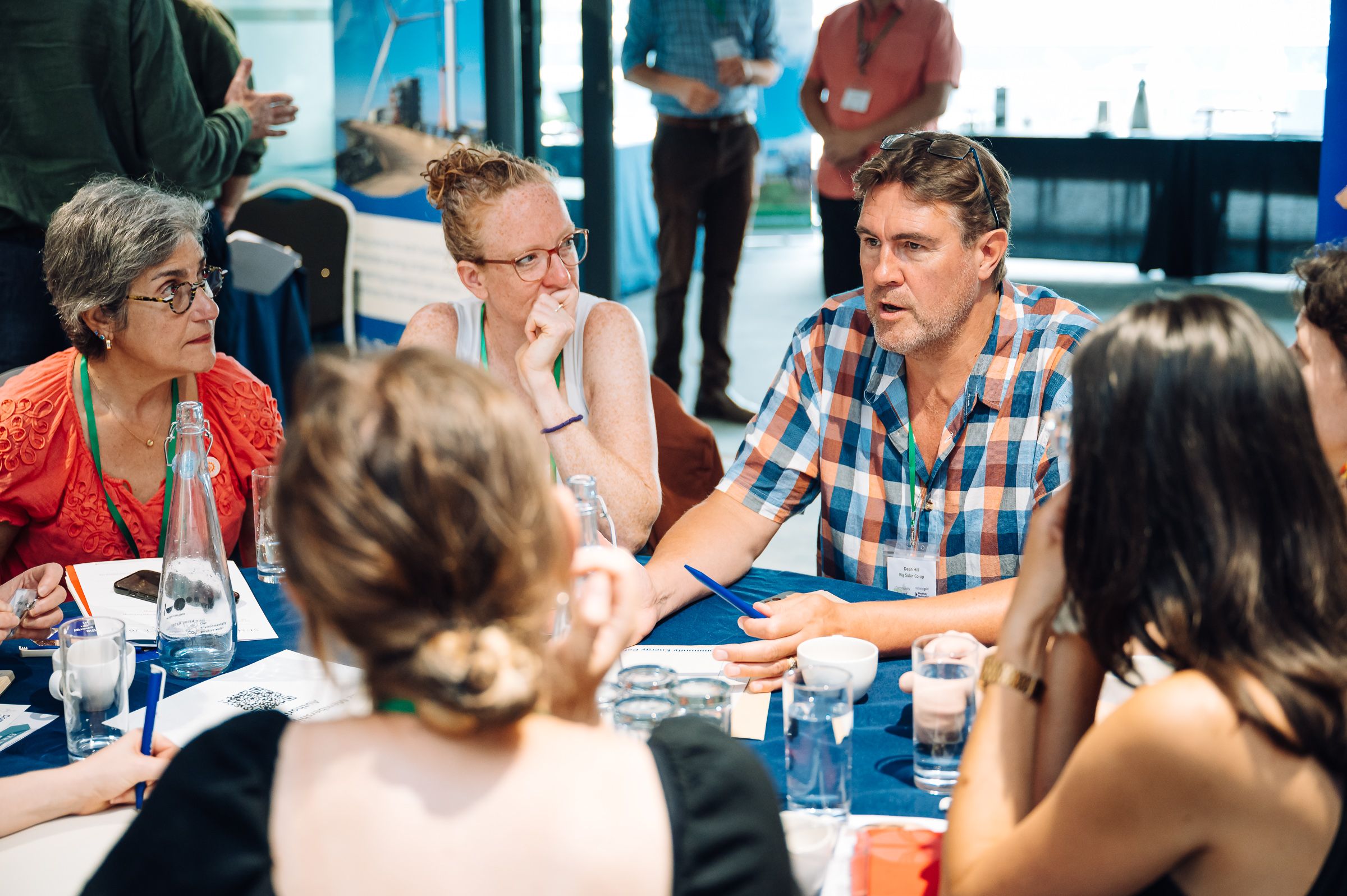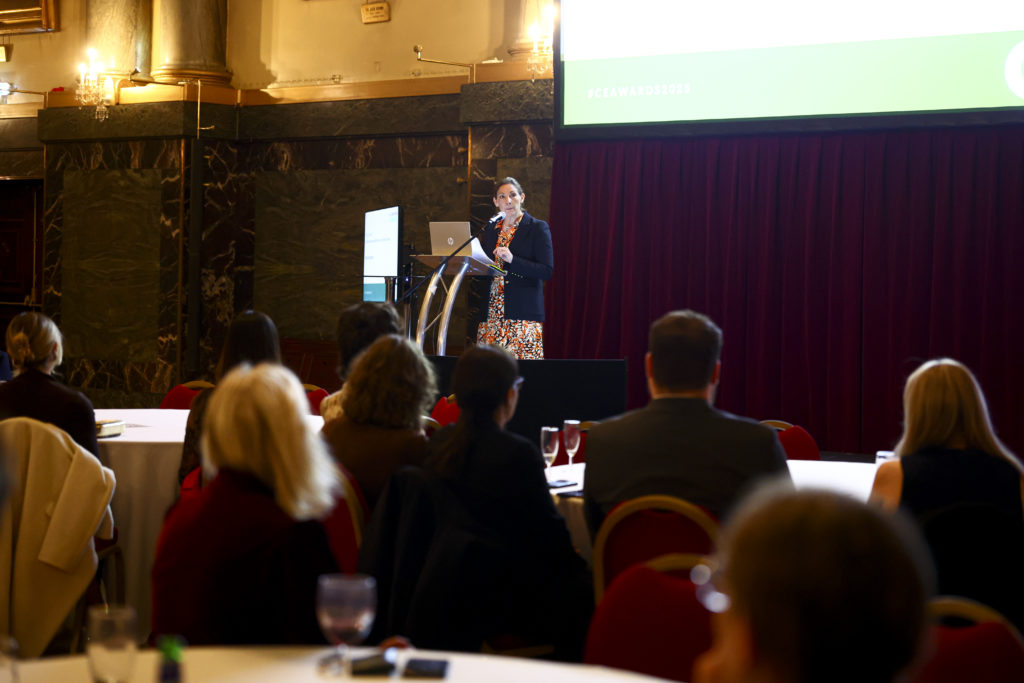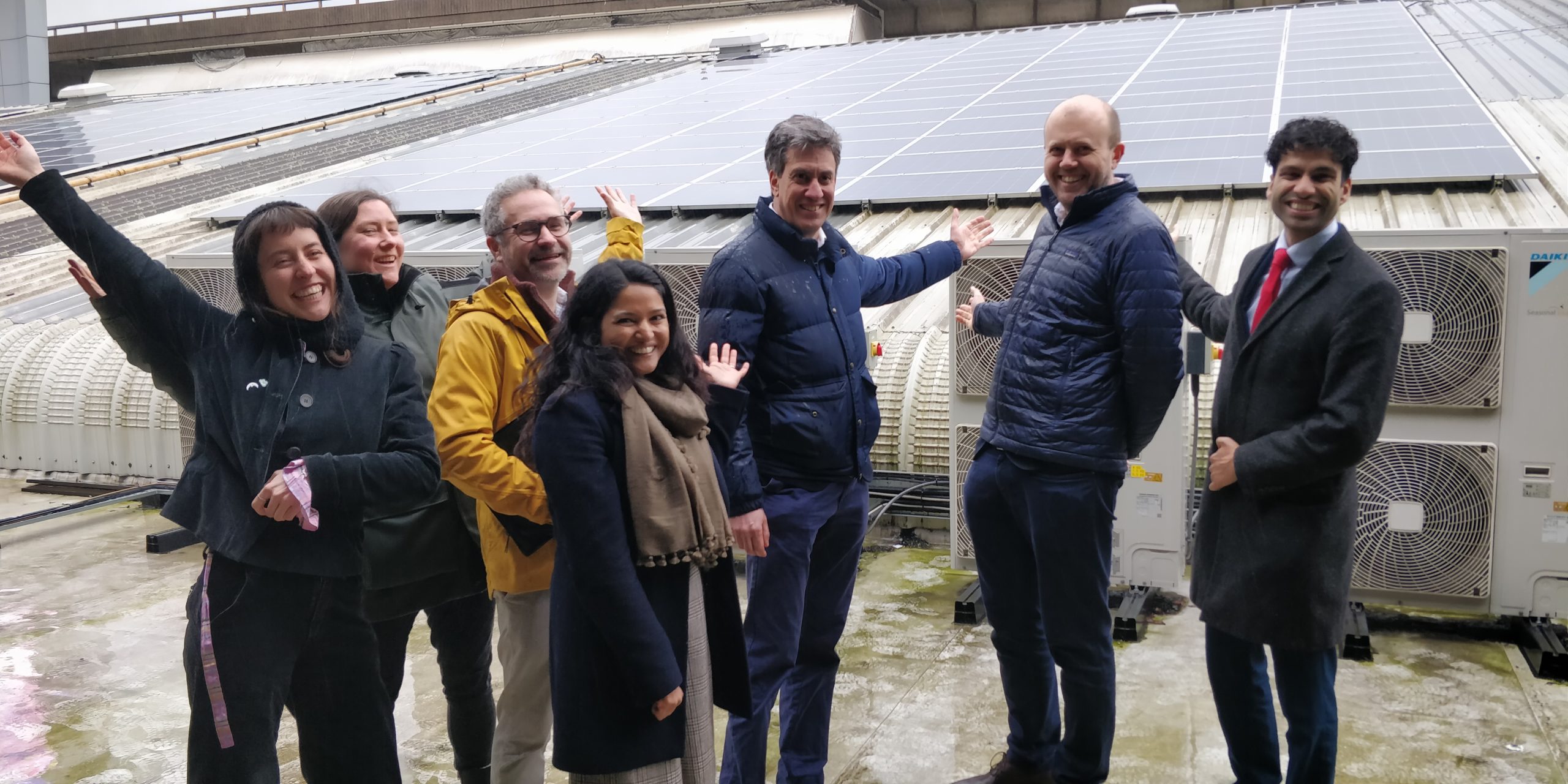
Policy & campaigns
We inform politicians, national and local government officials, network operators & regulators, of community energy’s benefits, needs, opportunities and policy obstacles.
We ensure that community energy organisations can create and implement innovative new projects and play an active and important role in the transition to a fair, zero-carbon energy system.
But we can’t do it without help! We need you to continue to engage with your MPs as community energy champions, share your practitioner expertise to inform policy change and help us bring pressure to bear.

Featured News
20 Nov 2025
Kate Gilmartin’s keynote speech at the Community Energy Awards 2025
Kate’s speech set the campaigning agenda for CEE to ensure community energy is central and indispensable to the radical energy transformation over the coming years.

Featured update
Launching our Up the Energy campaign
Help strengthen support for community energy and net zero – sign the open letter and join the movement today.
Policy priorities
We make sure decision makers know what the community energy sector needs in order to thrive. You can read more about our proposals for funding, growth, routes to market, shared ownership, grid connections, capacity building and other supporting policies on our policy priorities page.

Current consultations
CEE regularly responds to consultations to promote a policy environment that will enable the sector to thrive. We often encourage members to input into our consultation responses or to submit their own.
-
Corporate PPA call for evidence
Department of Business and Trade and Department of Energy Security and Net Zero
Deadline:
… on how the market for CPPAs in Great Britain can be developed and improved for industry, including where we can draw from international best practice to, improve competitiveness, increase efficiency and remove barriers to growth.
The Department for Business and Trade (DBT), and the Department for Energy Security and Net Zero (DESNZ), are therefore seeking views on the experience of current and potential market participants, and on approaches that could strengthen the market in the future. -
Proposed reforms to the National Planning Policy Framework and other changes to the planning system
Ministry of Housing, Communities and Local Government
Deadline:
The revised NPPF seeks to speed up planning. It seeks to better address climate change and has revised words around community-led development. It introduces separate, clearer policies for plan-making (Chapter 2) and decision-making (Chapter 3).
Please respond and/or send us your comments for our response
-
DBT Business support for coops and mutuals
Department of Business and Trade
Deadline:
The consultation aims to inform policy proposals to help meet the government’s manifesto commitment to double the size of the co-operatives and mutuals sector. It focusses on how support can be provided to start, grow and sustain business in the sector.

Policy responses
The policy responses we have submitted and our position on subjects that are receiving the attention of legislators
-
CEE Budget Representation [October 2025]
CEE submitted a representation to the Treasury ahead of the Autumn Budget. We made the case for prioritising capital and development funding for community-led initiatives instead of directly funding local energy projects without community involvement.
-
Consumer-led Flexibility Consultation Response [September 2025]
CEE argued that community energy should be supported to be at the heart of engaging citizens to participate in flexibility
Working groups
Energy Efficiency
The group provides thought leadership, knowledge-sharing and best practice, helping to drive funding and resources to the sector and shape our advocacy to government.
Low Carbon Heat
A forum for people to share knowledge, technical solutions, financial models and engagement methods for community heat projects.
Ethical Sourcing
Forced labour within solar supply chains is a serious issue for the net zero transition. This group aims to source reliable information for members and to campaign for ethical sourcing across the solar sector.
Experienced Practitioners
This limited membership group provides a space to discuss the opportunities and challenges associated with running larger community energy organisations.
Campaign tools
Help community energy to thrive
Our members are key to our advocacy. You know what you need, you have the expertise as practitioners, and you each have democratic representatives we can call upon.
Contact your MP
Adapt our sample letter and tag your MP on social media. The more MPs hear about the work community energy does in their local area, the more political support for the sector will grow.
Make your MP a community energy champion
MPs only respond to people and projects in their constituencies. So we are asking community energy practitioners and organisations to connect with and make an ally of your MP.
Organise a site visit
Use our guide to get local MPs, councillors and other decision makers to visit your organisation’s projects and help create more influential community energy champions.
